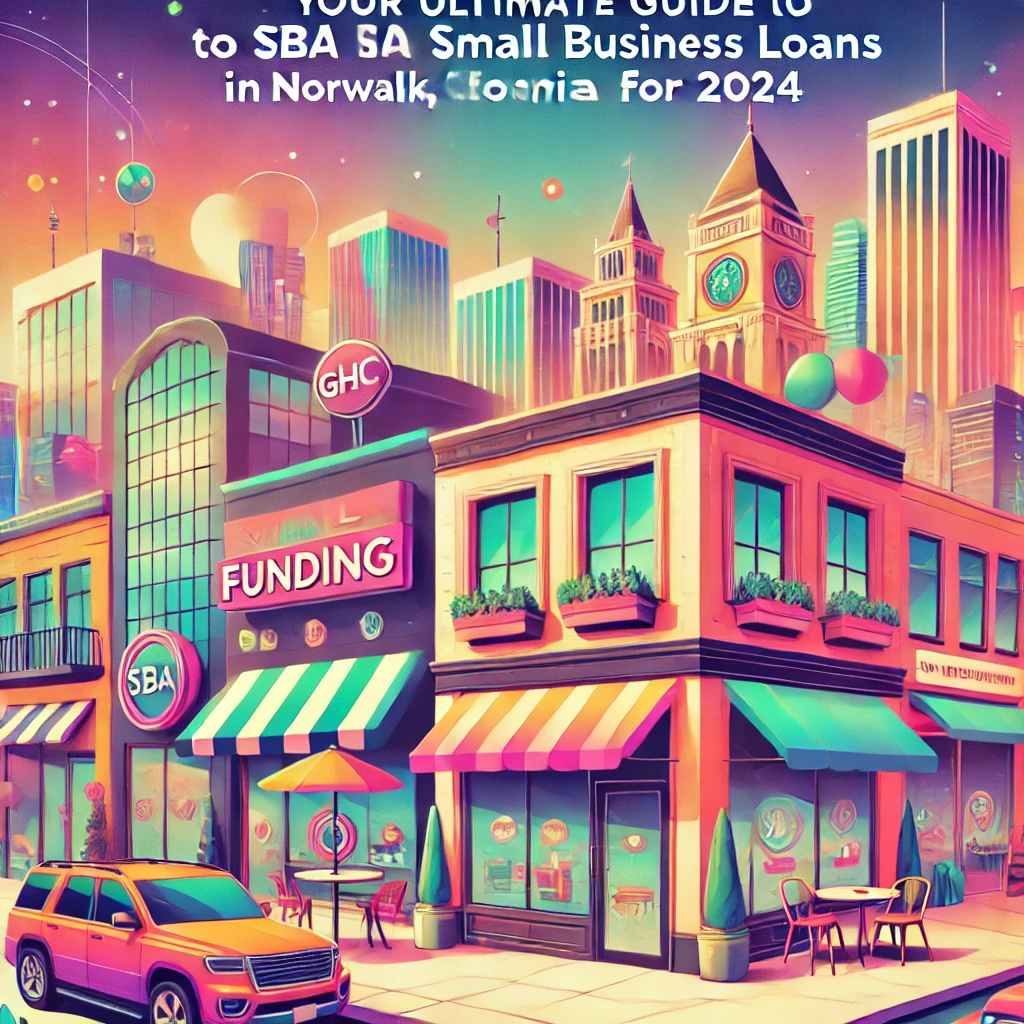Commercial Real Estate Loans in Georgia: Your 2025 Expert Guide
Georgia’s bustling economy, especially centered around Atlanta and other dynamic cities, continues to present prime opportunities for commercial real estate (CRE) investors. This comprehensive 2025 guide covers every aspect you need to know about multifamily financing—from local market dynamics to loan types, top lenders, and step-by-step application details. Whether you’re purchasing a new multifamily apartment complex, refinancing an existing property, or expanding your portfolio, understanding Georgia’s commercial lending landscape is key to success.
- Commercial Real Estate Loans in Georgia: Your 2025 Expert Guide
- 2025 Georgia Commercial Real Estate Market Snapshot
- Why Multifamily Financing in Georgia?
- Main Types of Multifamily Loans in Georgia (2025)
- Top Commercial Multifamily Lenders Active in Georgia (2025)
- Georgia Multifamily Loan Terms & Rates – 2025 Overview
- How to Apply: Step-by-Step Multifamily Loan Process in Georgia (2025)
- Success Stories: Georgia Multifamily Financing in Action (2025)
- 2025 Market Considerations for Georgia Multifamily Investors
- Frequently Asked Questions
2025 Georgia Commercial Real Estate Market Snapshot
- Atlanta Metro: Focused growth in Midtown, Buckhead, and South Atlanta fueled by tech, logistics, and corporate relocations.
- Savannah: Major port expansion drives need for industrial and multifamily development, especially near Garden City and Pooler.
- Augusta: New medical, cybersecurity, and energy projects boosting commercial activity in downtown, Evans, and the medical district.
- Columbus: Growing demand for workforce and student housing, especially near Fort Moore and Midtown.
- Alpharetta & North Fulton: Live-work-play communities see multifamily demand surge; tech companies continue attracting new residents.
- Rome & Macon: Revitalization initiatives stimulate demand for affordable and market-rate apartments in historic districts.
- Warner Robins: Robust population growth driving new multifamily and mixed-use developments.
Why Multifamily Financing in Georgia?
Georgia’s robust population growth, business-friendly policies, and expanding urban centers make it a southeastern hotspot for multifamily investors. New and existing apartment projects—ranging from garden-style developments in suburban areas to mixed-use high-rises in urban cores—require the right financing structure to maximize returns in 2025.

- Stable occupancy and rent growth across key Georgia metros
- Attractive cap rates compared to other Sunbelt states
- Immigration and in-migration fueling housing demand
- Increasing institutional investment in Class A and B multifamily properties
Main Types of Multifamily Loans in Georgia (2025)
- Commercial Mortgages on Multifamily Properties: Bank and life company loans for stabilized apartment buildings (5+ units), typically fixed or floating-rate.
- Agency Loans: Fannie Mae and Freddie Mac offer competitive rates for qualifying multifamily properties—used widely in Atlanta, Savannah, and beyond.
- Bridge Loans: Short-term loans (12-36 months) for acquisitions, repositioning, or lease-up situations.
- Construction Loans: Interim financing tailored for ground-up or major renovation projects.
- HUD/FHA Loans: Long-term, non-recourse loans, ideal for affordable housing and larger stabilized projects.
- CMBS Loans: Secured via mortgage-backed securities, available on larger ($3M+) stabilized multifamily assets.
Top Commercial Multifamily Lenders Active in Georgia (2025)
- Synovus Bank: Major regional player with robust multifamily lending in metro Atlanta and Savannah.
- Truist: Headquartered in the Southeast; strong appetite for stabilized and value-add deals state-wide.
- Walker & Dunlop: Direct Fannie Mae/Freddie Mac multifamily lender—very active in Georgia urban cores.
- Berkadia: National agency, HUD, and bridge financing for multifamily, with a Georgia office driving local deals.
- Colony Bank: Georgia-based lender with flexible terms for small and mid-market apartment loans.
- Greystone: Leading national multifamily lender; strong presence in Atlanta’s rapidly changing neighborhoods.
Georgia Multifamily Loan Terms & Rates – 2025 Overview
| Loan Type | Typical Terms | Loan Amounts | Rates (2025) |
|---|---|---|---|
| Commercial/Bank Multifamily | 5-10 years, amort. 25-30 yrs | $500K – $15M+ | 6.25% – 7.75% |
| Agency (Fannie/Freddie) | 5-30 years, amort. 30 yrs | $1M – $100M+ | 5.75% – 6.50% |
| Bridge Loans | 12-36 months, int. only | $1M – $50M+ | 7.50% – 10.50% |
| HUD/FHA 223(f) | 35 years fixed, amort. 35 yrs | $1.5M – $50M+ | 5.15% – 5.85% |
Rates reflect typical Georgia offerings in Q1 2025 for well-qualified borrowers. Rates and terms may vary by sponsorship, property location, and leverage.
Need capital? GHC Funding offers flexible funding solutions to support your business growth or real estate projects. Discover fast, reliable financing options today!
Test Your Expertise: The Complexities of the 1031 Exchange

As a sophisticated real estate investor, you understand that the 1031 Exchange is a cornerstone strategy for tax deferral and wealth accumulation. But beyond the basics, the intricacies of the 1031 Exchange rules can pose significant challenges. This quiz is designed to test your in-depth knowledge and highlight critical nuances that separate casual investors from true experts in 1031 Exchange transactions.
Instructions: Choose the best answer for each question.
⚡ Key Flexible Funding Options
GHC Funding everages financing types that prioritize asset value and cash flow over lengthy financial history checks:
-
Bridge Loans: These are short-term loans used to "bridge the gap" between an immediate need for capital and securing permanent financing (like a traditional loan or sale). They are known for fast closing and are often asset-collateralized, making them ideal for time-sensitive real estate acquisitions or value-add projects.
-
DSCR Loans (Debt Service Coverage Ratio): Primarily for real estate investors, these loans are underwritten based on the property's rental income vs. debt obligation ($\text{DSCR} = \text{Net Operating Income} / \text{Total Debt Service}$), not the borrower's personal income or tax returns. This offers flexibility for those with complex finances.
-
SBA Loans: The Small Business Administration (SBA) guarantees loans offered by partner lenders. While providing excellent terms (long repayment, lower rates), the application process is typically slower than private/bridge funding, often making them less suitable for immediate needs. SBA eligibility heavily relies on the DSCR metric for repayment assessment.
🌐 Learn More
For details on GHC Funding's specific products and to start an application, please visit their homepage:
The Ultimate DSCR Loan for Rental Property Quiz

Are you looking to expand your real estate investment portfolio? A DSCR loan might be the perfect tool to help you achieve your goals without relying on traditional income documentation. Test your knowledge with this quiz to see if you're ready to master the intricacies of a DSCR loan for rental property.
How to Apply: Step-by-Step Multifamily Loan Process in Georgia (2025)
- Property & Borrower Preparation
- Gather updated rent roll, trailing-12 month financials
- Prepare business plan (for acquisitions/value-add projects)
- Compile borrower/guarantor financials (personal financial statement, REO schedule, credit summary)
- Lender Selection & Term Sheet
- Engage a mortgage broker or approach lenders directly (see above)
- Negotiate indicative term sheet – focus on leverage, interest rate, recourse, prepayment terms
- Application & Underwriting
- Submit formal application, pay appraisal/third-party report deposits
- Lender conducts full underwriting: appraisals, environmental, rent comparables
- Commitment & Closing
- Receive formal commitment; review covenant structure
- Legal documentation and closing coordination with title and escrow
- Loan funds; new mortgage is recorded
Success Stories: Georgia Multifamily Financing in Action (2025)
- Case 1: Atlanta Urban Value-Add Project
A local developer secured a $4.2M Freddie Mac Small Balance Loan via Walker & Dunlop to acquire and renovate a 44-unit apartment building in Downtown Atlanta. Terms included 6.25% fixed, 30-year amortization, and 80% LTV. The repositioned property achieved 98% occupancy within six months, yielding a 16% year-one cash-on-cash return. - Case 2: Savannah New Construction
A regional investment group closed a $2.9M construction-to-permanent loan with Synovus for a 32-unit garden-style complex near the Savannah port. The loan featured a floating construction rate converting to 6.1% fixed on stabilization. The project leased up in nine months, outperforming pro forma rents by 8%. - Case 3: Augusta Affordable Multifamily Refinance
Berkadia originated a $6.5M HUD 223(f) loan for a 72-unit affordable community in Augusta. With 85% LTV, a 35-year fixed rate at 5.35%, and full non-recourse, the borrower locked in substantially lower payments to support further acquisitions. - Case 4: Macon Small-Balance Multifamily Acquisition
A newer sponsor secured a $930,000 bank loan from Colony Bank to acquire a 12-unit property in Macon. The deal featured 7.1% fixed for 7 years, 25-year amortization, and 75% LTV, making for an accessible entry into the CRE space.
2025 Market Considerations for Georgia Multifamily Investors
- Heightened demand for affordable and workforce housing in suburban and tertiary markets
- Rising construction costs balanced by robust rent growth, especially around Atlanta and Savannah
- Increased lender emphasis on sponsorship experience and property cash flow
- Opportunities for value-add repositioning in older Class B/C buildings statewide
- Potential for market volatility, but supported by strong job/in-migration trends
Frequently Asked Questions
- What credit score is required for a Georgia multifamily loan in 2025?
- Generally, a 660+ personal credit score is recommended. Strong sponsorship, liquidity, and net worth requirements apply based on deal size and lender.
- Are non-recourse multifamily loans available?
- Yes—agency and HUD/FHA loans are typically non-recourse. Bank loans often require recourse in Georgia; exceptions for larger or high-quality sponsors may apply.
- How long does the application process take?
- Bank/bridge loans: typically 45-60 days; agency/FHA: 60-120 days depending on property, lender, and third-party report delivery.
Conclusion: Georgia’s Multifamily Lending Landscape in 2025
As Georgia continues to emerge as a premier destination for multifamily investment, partnering with knowledgeable lenders and understanding current financing options is crucial. Whether you’re investing in Atlanta’s skyline, Savannah’s growing suburbs, or Augusta’s revitalized corridors, there is a loan solution for every multifamily vision in the Peach State. Start your loan inquiry today and capitalize on Georgia’s booming 2025 CRE market.
Get a No Obligation Quote Today.
✅ Real Estate Investor Resources
-
AirDNA (Short-Term Rental Data)
https://www.airdna.co - Rentometer (Rent Comps)
https://www.rentometer.com - Zillow Research & Data
https://www.zillow.com/research
DSCR Loan IQ Quiz!

Test your knowledge of Debt Service Coverage Ratio (DSCR) loans!



